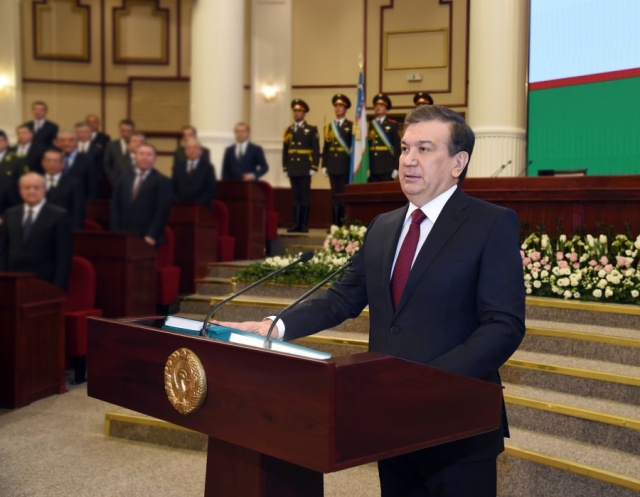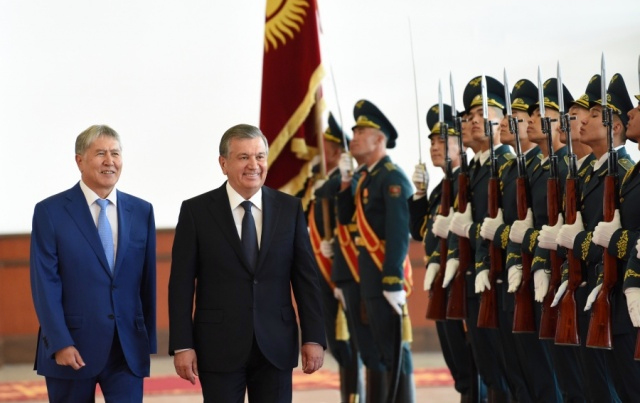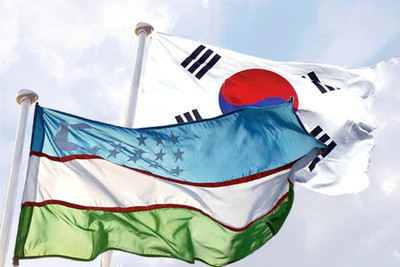Kustov Konstantin – Chief Research Fellow, Institute for Strategic and Regional Studies under the President of the Republic of Uzbekistan
After the adoption of the Strategy on five priority directions of development of the Republic of Uzbekistan in 2017-2021 on February 14 2017, the country almost every day becomes the "main hero" of the newsfeeds of the world's leading media, analytical portrayals of "think tanks" and influential experts. Indeed, such deep and fundamental changes in the modern development of Uzbekistan are attracting attention of specialists on Central Asia as well ordinary people.

The subject for the discussions is truly impressive. Thus, in pursuance of the Strategy, 15 laws and more than 700 different regulatory and legal acts were adopted targeting on the advancement of all spheres of state and public life. For the short period since February 2017, 16 ministries and committees as well as more 20 governmental bodies of Uzbekistan have been reformed. Moreover, the judicial system and the structure of interior affairs institutions of the country has been revised and improved.
Significant achievements have been made in the social sphere. During the first half of 2017, more than 2,700 km of roads have been restored and built, more than 84,000 workplaces were created. The Program for the construction and modernization of energy-efficient apartment buildings in cities and customary housing in rural areas is being implemented.
The increased attention and wide resonance in the world caused the news on the liberalization of the foreign exchange market in Uzbekistan. Foreign experts characterized this step of the President Shavkat Mirziyoev as a "volitional decision". Leading economists made a farseeing and reasonable note that the transition to free conversion of foreign currency in Uzbekistan has become a significant historic event not only for Uzbekistan, but for the entire region. This will profoundly change the whole economic structure of Central Asia, and Tashkent possibly can become the political and economic capital of the region.
However, without taking into consideration Tashkent's foreign policy matters, the picture of modern Uzbekistan would not be complete. New leadership of the country defined "the implementation of a balanced, mutually beneficial and constructive foreign policy" as one of the key points the Strategy of Actions. Already from the first days of the inauguration of the Uzbekistan’s President Shavkat Mirziyoev highlighted the continuity and consistency of the country's foreign policy, stated about the openness of our nation to active international cooperation with all foreign countries on the basis of principles of mutual respect, equality and consideration of interests of one another.

At the same time, I would like to focus the attention of the reader on the factor of "continuity", which on the subjective view of the author of these lines is the cornerstone of Uzbekistan's foreign policy. Since Tashkent intends to continue to maintain equal, pragmatic and balanced relations with all global powers and countries in its immediate neighborhood, pursuing a consistent course on the world arena is beneficial not only to Tashkent, but also to its foreign partners. They can rely on a predictable Uzbekistan, knowing that it will not swing, like a pendulum in its foreign policy.
In this context, it is necessary to underline the special directorial role of the Concept of Foreign Policy of Uzbekistan adopted in September 2012. It was assembled taking into consideration the development of independent Uzbekistan and the rich historical experience of our state. The country remains committed to its foreign policy since the first years of its independence. They include the following fundamental principles:
First, openness for cooperation, regardless of ideology, adherence to universally recognized international norms and principles, maintenance of peace and security;
Second, equality and mutual benefit, respect for sovereignty, territorial integrity, inviolability of borders and non-interference in the internal affairs of states, peaceful settlement of contradictions, non-use of force or threat of force;
Third, priority of universally recognized norms of international law over domestic legislation.
Uzbekistan builds its policy within the framework of multilateral formats very carefully. Tashkent possesses the right to conclude alliances, to enter into commonwealths and other interstate formations, as well as to withdraw from them. It is conducted on the basis of the national interest, concerns of the people, state well-being and security, priority directions of the country’s modernization, current national legislation and international commitments.
At the same time, our country pursues a peaceful policy and does not take part in military-political blocs, holds the right to withdraw from any interstate organization in the case of its transformation into a military-political bloc. The Armed Forces of Uzbekistan are created exclusively for the protection of state sovereignty and territorial integrity, peaceful life and security of the population, do not take part in operations abroad. Also, the deployment of foreign military bases on its territory is not allowed.
Moreover, the whole history of independent Uzbekistan shows that the country is taking a wide range of measures to prevent its involvement in armed conflicts and outbreaks of tension in the neighboring countries. Such a deeply verified, balanced foreign policy allowed Uzbekistan not only to provide national and regional stability, but also to construct a stable system of balanced relations with foreign counterparts in order to provide Uzbekistan's long-term interests promotion effectively.
President Shavkat Mirziyoev defined the Central Asian region as the foremost priority of Uzbekistan's foreign policy, where the vital interests of our country are positioned.
The main directions of the Central Asian policy of Uzbekistan are the following: ensuring peace and stability in the region; tackling the crucial issues of regional security, including assistance in resolving the situation in Afghanistan; discussing the use of trans-border river; accomplishing of border delimitation and demarcation processes; providing environmental sustainability; establishing constructive cooperation with all neighboring states.
In addition, the head of Uzbekistan draws special attention to the economic cooperation of bilateral relation both with the brotherly countries of Central Asia and far countries. On the one hand, it contributes to the resolution of interstate problems, development of cooperation on common regional challenges and threats. Consequently, such cooperation leads to consistent formation of a security, stability and good neighborliness belt around Uzbekistan. On the other hand, it expands the horizons of opportunities for activating national and foreign business contacts in order to cooperative exploration of new markets. A striking example of this policy were the multibillion-dollar agreements signed during the visits of Uzbekistan’s President to Turkmenistan, Kazakhstan, Kyrgyzstan, China and Russia.
Concerning the South Korean direction of Uzbekistan's foreign policy, it should be noted that relations with Seoul are traditionally advanced and diversified, covering a wide range of areas of cooperation. This country has a special importance for our nation, for the reason that in the Republic of Korea we see one of Uzbekistan's leading foreign policy partners not only in Asia but in the whole world.

Over the years of independence, a solid juridical base has been formed regarding Korean-Uzbek relations. It is a product of a high level of political dialogue between countries at the higher and the highest levels. Seoul also remains one of the main trade, economic and investment partners of Tashkent. For instance, trade turnover between the two countries exceeded $ 1 billion in 2016. Republic of Korea continually holds leading positions in the list of major investment partners of Uzbekistan. The volume of direct Korean investment in the economy of our state today goes beyond $ 7 billion.
As a final point, I would like to emphasize that for a short period of time in historical terms Uzbekistan has passed its evolutionary path of market reforms and socio-political modernization with the least losses. However, Uzbekistan realize the problems it is facing, internal and external challenges to development. Therefore, the country is constant in search for the most effective and long-term solutions. And the Strategy of Actions for 2017-2021, initiated by President Shavkat Mirziyoev has become evidence that today Uzbekistan sets new priorities and large-scale development tasks for the future.

